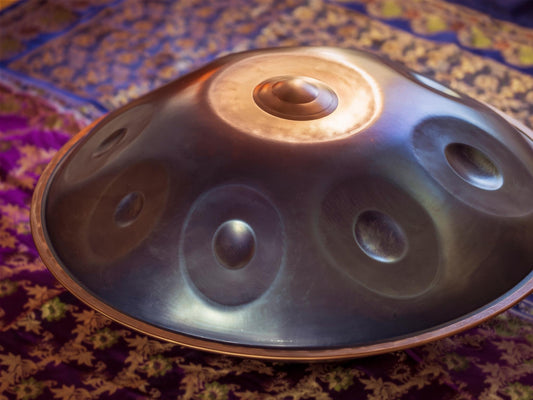When was the last time you took a moment to breathe, relax, and recharge? With a busy schedule, it's important that we all take a few minutes during the day to calm our minds. One of the best ways to do this is to meditate.
It is estimated that anywhere from 200 to 500 million people across the world meditate on a regular basis. By practicing meditation daily, you may achieve the mental clarity necessary to function better and live happier. But if you've never done it before, you might feel apprehensive or unsure of how to adopt this habit.
Have no fear. This article has all the top information and tips on how you can create your own meditation routine and stick to it.
1. a Brief Background on Meditation
It's likely that you've heard of friends, family, or acquaintances practicing meditation. But do you know what it is? Before adopting your own habits, it's important that you have a brief background on meditation's history and purpose.
Meditation is a practice of mindfulness that trains the brain to focus on a specific task, thought, or mental state. This can create a sense of calmness, level-headedness, and awareness.
Many historians and archaeologists date meditation's origins back to 5,000 BCE. This was a popular practice among Chinese and Egyptian culture. Meditative practices also took place in the ancient religions of Buddhism, Judaism, Hinduism, and more.
In the 1960s, meditation began to be studied for its potential health benefits. Some key health benefits are reduced heart rate and increased brain waves that help with sleep.
As meditation has made its way into new cultures, it's form has evolved with it. However, its main purpose has remained the same; Mental clarity.
2. How to Meditate
Now that you know more about what meditation is, you may be wondering how to meditate. The truth is, there is no one size fits all answer. Daily calm meditation habits will look slightly different for everyone.
One of the most common ways to meditate is by sitting in a quiet place, closing your eyes, and taking deep breaths. This routine may last anywhere from ten minutes to several hours depending on your needs and level of experience. When following this routine, it's important to focus on the sensations of the body and breathing.
What does it feel like to take a deep breath? Do you feel it in your chest, stomach, or lungs? How is your body positioned?
These are a few simple questions to reflect on when meditating. Some also enjoy listening to meditation music. This can help you feel calm, remain present, and practice mindfulness.
Eventually, your mind will wander away from these thoughts and into a trance-like state; This is the goal.
Simple meditation habits like this can help the brain better limit distractions in your daily life. It can also help you de-stress and recharge a busy mind. As we often may feel distracted by thoughts about our work and responsibilities, meditation helps to release this stress.
3. Tips for Keeping a Meditation Routine
To find a meditation routine that you can stick to, you should first experiment with different methods. Whatever method you choose, it's important that it can fit into your daily life. Here are a few tips that might help you stick to your routine.
If you have trouble relaxing or finding a calm headspace, consider listening to soothing meditation music. There are many potential health benefits of listening to relaxing music, like improved sleep and heart health.
You might also find that listening to a guided meditation can help you get started with your routine each day. Guided meditations usually consist of an audio track talking you through the meditation steps. There are many guided meditation apps and videos on the Internet that you can access right now for free.
Another way to feel motivated and stick to your routine is through group meditation.
Some people find it easier to share the experience with others. This often takes place in a classroom setting with an instructor to guide the students. This option can help you set a solid meditation schedule for yourself and find others to hold you accountable.
No matter the tips you use to mediate, be sure to not get discouraged early on. Practicing meditation requires a new way of thinking for many people. While you may find it difficult in the beginning, you'll enjoy the benefits as time passes.
4. Why You Should Meditate Daily
If you're having trouble finding the desire to meditate daily, these facts may help motivate you. No matter what time of day you meditate, remembering these benefits can help keep you on track.
Daily meditation is one of the best ways to manage stress and focus on the positive. If you have a clouded mentality full of worry, it can be difficult to complete tasks efficiently. Daily meditation, even for ten minutes, can help you find a new perspective.
It can also increase your patience and reduce negative thoughts. While it's not possible to feel positive all the time, meditation can help increase your patience for yourself and others. This can help you become a happier, more pleasant person.
Other potential benefits are reduced symptoms of chronic pain, headaches, and anxiety. It may also help you get a better night of sleep and feel more rested.
To stick to your daily meditation routine, consider writing out your goals for meditation. For example, you might want to increase your focus, reduce your stress, or feel more mentally stable. By writing these down, you can better identify the necessary steps to achieve them.
Each day, your meditation goal may be different. Consider reflecting on your written goals and the method to follow before meditation.
Practice Meditation Daily
If you want to live healthier and happier, finding a meditation routine and ways to stick to it may change your life. Now that you know different methods and reasons to practice, what are you waiting for? Practice meditation daily and experience the immense results that it has to offer.
For help with your meditation routine, be sure to shop our collection of relaxing music or contact us today.




